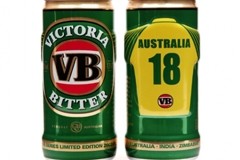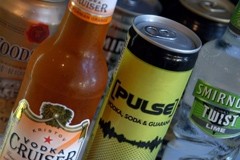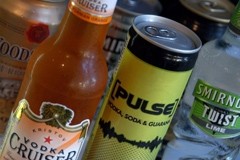Australian medical body calls for more controls on alcohol marketing

According to Alcohol Marketing and Young People: Time for a new policy agenda, young people in Australia are beginning to drink at an earlier age, and most drink in ways that put their health at risk.
The AMA said in the report that addressing the marketing and promotion of alcohol to young people is critical in an overall strategy to address this issue.
New age, new ways
The report found that young people are exposed to alcohol marketing at an unprecedented level from a range of sources.
“Alongside more traditional modes of advertising through television and radio, the introduction of digital technologies has opened up new platforms for marketing and promotion,” it revealed.
“Alcohol companies are aggressively harnessing the marketing potential of online video channels, mobile phones, interactive games and social networks, such as Facebook and Twitter.”
Such marketing efforts are increasingly sophisticated and multidimensional, integrating online and offline promotions with the sponsorship of music and sporting events, the distribution of branded merchandise and the proliferation of new alcoholic brands and flavours.
According to the AMA, the explosive rise in alcohol marketing has resulted in shaping young people’s attitudes and behaviour, encouraging them to take up drinking, and to drink more once they do.
Inadequate oversight
It added that there is an urgent need to tackle the problem of alcohol marketing through robust policy and stronger regulatory oversight:
“Existing policy and regulatory responses in Australia have proven inadequate and have failed to keep up with the pace and scope of change in the media and marketing environment.
“The self-regulatory scheme for alcohol advertising in Australia is funded and administered by the alcohol industry. It is voluntary, limited in scope, unable to enforce penalties and ultimately fails to protect young people from continuous exposure to alcohol marketing.”
The AMA recommended that the regulation of alcohol marketing and promotion should be made statutory and independent of the alcohol and advertising industries.
“Meaningful sanctions for serious or persistent non-compliance with marketing regulations should be introduced, particularly where those regulations relate to children and young people.”
In addition, the sponsorship of sport, youth, cultural, and musical events by alcohol companies and brands should be phased out, as regulations need to limit the volume and content of alcohol marketing, it suggested.
“The regulation of alcohol marketing should be expanded to be sufficiently flexible to incorporate new and evolving digital marketing activities.”
“The amount spent annually on marketing by leading alcohol companies should be publicly disclosed, including expenditure on social media, online video, mobile campaigns, events sponsorship and product placement.”
Current framework is enough, argues industry
However, the Distilled Spirits Industry Council of Australia (DSICA) countered the AMA and said that the current framework within which alcohol marketing is conducted is enough even if digital marketing does need to be looked into.
Stephen Riden, a spokesperson for the DSICA, told FoodNavigator-Asia that the alcohol and advertising industries abide by a quasi-regulatory code and not a self-regulatory code as alleged.
“This means it is run in co-operation with, and supported by, the Australian government. It covers all paid advertising,” he said.
The AMA has said that this voluntary code adopted by companies in Australia is obsolete with the increasing take up of pay TV, more free-to-air channels, the explosion of social media and a shift to online content.
“The AMA is willfully ignorant of the Alcohol Beverage Advertising Code (ABAC) scheme’s reach and effectiveness. They have never contacted the scheme’s management to find out how it works in detail,” Riden countered.
“All paid advertising on whatever TV channel or Internet site needs to be pre-vetted beforehand, and be complaint with the ABAC scheme. The briefest reading of the published adjudications on complaints would have shown this,” he said.
Riden said that social media is an emerging area for marketing and the ABAC management is in the process of addressing how it can be regulated in line with the standards and intent of the ABAC scheme.
“The issue for debate is social media, and the ABAC scheme recently decided that user-generated content was the responsibility of the company using social media for marketing,” Riden added.
On more regulatory oversight, as recommended by the AMA, Riden pointed out that alcohol advertising has been investigated by several successive parliamentary inquiries—always with the same result of a few recommendations for tweaks to the processes.
“To be brief, the case against alcohol advertising does not survive long when actually examined by politicians with open minds,” he said.



















